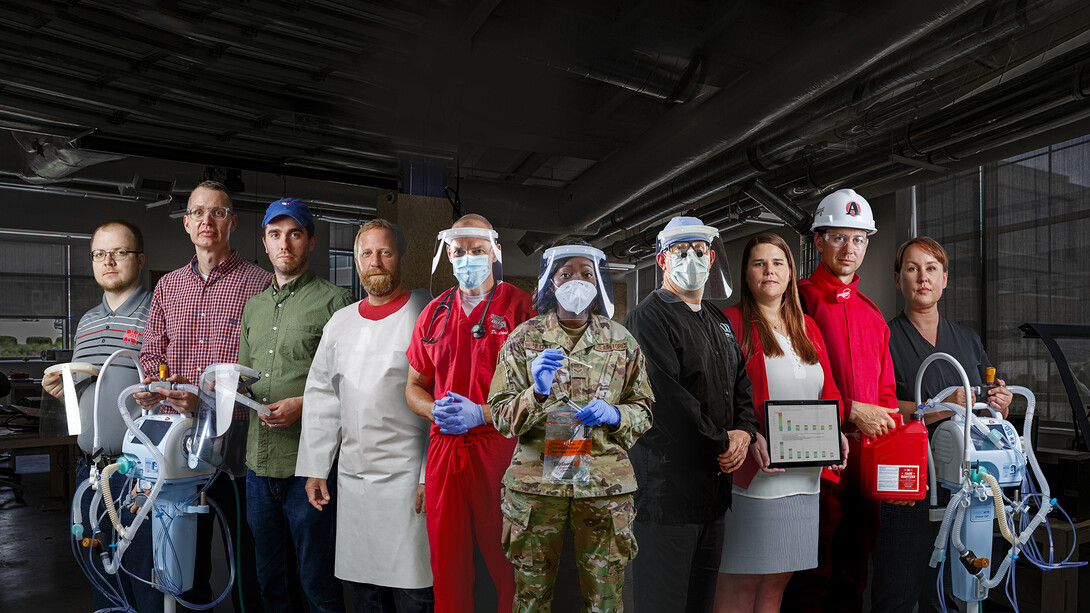
A lineup of researchers, staff and physicians who have used their powers for good — many by combatting the novel coronavirus and COVID-19 — fill the cover and the pages of the recently released 2019-2020 Nebraska Research Report.
The annual report from the Office of Research and Economic Development pays tribute to “Nebraska’s research heroes” — Huskers who have spent the past year channeling their expertise and turning their attention toward SARS-CoV-2. Their ingenuity yielded 21,000 face shields for health care workers, 200,000 gallons of donated hand sanitizer, an engineering solution for sharing ventilators, a contract-tracing smartphone app and a series of educational comics, as detailed in the report.
“These are only a (few) examples of how Nebraska is addressing the most serious public health threat in a century,” Robert “Bob” Wilhelm, vice chancellor for research and economic development, wrote in the report.
Before and after the onset of the pandemic, Husker researchers also advanced the state of the science and kicked off vital projects in numerous other areas. For the first time, researchers are using financial data to track the long-term trajectories of people who face eviction. A first-of-its-kind screening tool is helping flag the warning signs of ecosystem shifts early enough to help mitigate them. World-class nano-engineering is employing the principles of DNA assembly to refine circuitry in microelectronics.
The report spotlights education-focused initiatives, too: improving academic outcomes for children who spent time in foster care, addressing the instruction of English-language learners, and expanding the menu of virtual field trips to Morrill Hall, among other projects.
From July 2019 through June 2020, the University of Nebraska–Lincoln put a record $317 million of external and internal funding toward research.
“2020 is leaving an indelible mark on history,” Wilhelm wrote. “The COVID-19 pandemic, growing political divisions, racial and other social tensions, and natural disasters have strained Americans’ sense of peace and well-being.
“University of Nebraska–Lincoln scholars are meeting those challenges head on.”







